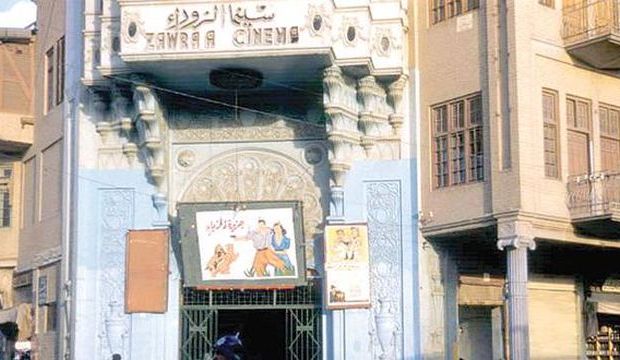Baghdad, Asharq Al-Awsat—Despite severe violence and unrest in Iraq and widespread rumors that the Islamic State in Iraq and Syria (ISIS) is approaching the outskirts of its capital, the 6th Baghdad International Film Festival went ahead as planned last week. Out of the 750 films participating from 40 different countries, 112 films were shown within the festival’s six competition categories. The majority of the films had their Iraq and Arab world premieres.
The festival represented a bold attempt to revive Iraq’s near-dead cinema industry. Unsurprisingly, Iraq’s movie theaters have been in decline for over 10 years, but it was not always so. Since the first cinema opened in the 1930s, they were a pillar of the capital’s social cultural lives, with a cinema on nearly every main street.
Baghdad’s cinemas flourished in the early days, screening a variety of films for different audiences. The Al-Nasr cinema on Al-Saadoun Street—where the upper classes watched the great Egyptian films of the time from its balconies—showed mainly family movies. The Semiramis cinema screened the top releases, especially films from the West. The Granada and Babel cinemas showed the art-house films preferred by Iraqi intellectuals, whereas the Sindbad cinema showed Bollywood movies. Al-Khayam, once one of the finest cinemas in the Middle East, showed mostly action films. But the distinguishing feature of Baghdad’s film scene used to be its nightly open air cinemas. The renowned Roxy cinema is one such place that was popular with Iraqi families.
Movie theaters in Baghdad are slowly disappearing now after being left to ruin or being burned down. Iraq’s various and numerous misfortunes since the early 1990s, as well as the economic and political situation and subsequent drought in film-making, delivered the coup de grâce to what remained of Baghdad’s movie theaters. Sometimes the defunct cinema halls were used to screen locally produced videos, or for live comedy shows. Most, however, were ultimately converted into storehouses or showrooms.
Iraqi filmmakers have complained of government negligence in failing to renovate movie theaters for the past 11 years under the pretext of a lack of funds.
Those behind the film festival, however, insisted on carrying on with the festival’s scheduled program despite the country’s current dire circumstances. The organizers of the festival were determined to counteract fears fueled by the media over ISIS’s possible encroachment into Baghdad, by keeping the city’s nights busy with hundreds of film screenings and cultural and art seminars. The intention was to give a boost to film production in Iraq, encourage burgeoning and professional filmmakers, back women filmmakers in Iraq and the Arab world, and stand up for the values of civilization and social and artistic progress.
Speaking to Asharq Al-Awsat, the festival’s director, Taher Alwan, said: “Preparation for the festival, which is the largest one yet, took a whole year. We wanted the premiere to be an Iraqi one, and so we decided to present the film Al-Haj Najim, a film produced as part of the ‘Baghdad Capital of Arab Culture’ project.” The film, which revolves around the Iraqi resistance to British occupation in 1918, was directed by Amer Alwan and stars the Iraqi actor and director Sami Kaftan.
Also showing at the festival was short narrative film titled The Patience of the Keys, scripted and directed by Kaftan. He emphasized that his country’s ability to express its suffering through art has become customary throughout its history. “In view of what is happening now in Iraq in terms of killing based on people’s religious identity and sectarian battles, it is our duty to strengthen national unity,” Kaftan told Asharq Al-Awsat.
He added “[The film Al-Haj Najim] is a call to revisit the past, specifically the year 1918, and to compare this period to what Iraq witnessed after the ouster of the previous regime and the entry of the US troops.”
The Baghdad International Film Festival began in 2004 around the same time as the Iraqi Filmmakers Without Borders Society—an independent registered non-government organization—was founded. The festival was put on the list of international festivals in 2012 and has since gained a huge following thanks to its partnerships with several world-class festivals such as the Seattle International Festival in the US, Clermont-Ferrand Festival in France, and the Amsterdam Festival in the Netherlands, along with organizations including the National Council for Cinema in Egypt.


Trackbacks/Pingbacks